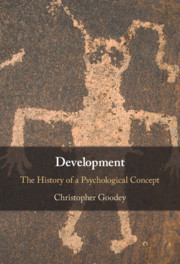Refine search
Actions for selected content:
9 results
Desire, dissatisfaction, dispersal: The oddness of desiring God
-
- Journal:
- Scottish Journal of Theology , First View
- Published online by Cambridge University Press:
- 18 August 2025, pp. 1-12
-
- Article
-
- You have access
- Open access
- HTML
- Export citation
2 - Modesty and Humility
- from PART IV - THE ETHOS OF MODERATION
-
- Book:
- Why Not Moderation?
- Published online:
- 12 October 2023
- Print publication:
- 12 October 2023, pp 160-167
-
- Chapter
- Export citation
13 - Tocqueville’s Puritans
- from Part III - Genres and Themes
-
-
- Book:
- The Cambridge Companion to <I>Democracy in America</I>
- Published online:
- 23 March 2022
- Print publication:
- 24 March 2022, pp 347-366
-
- Chapter
- Export citation
Introduction
-
-
- Book:
- The Cambridge Companion to <I>Democracy in America</I>
- Published online:
- 23 March 2022
- Print publication:
- 24 March 2022, pp 1-44
-
- Chapter
- Export citation
1 - Tocqueville and the Philosophy of the Enlightenment
- from Part I - Sources and Contexts
-
-
- Book:
- The Cambridge Companion to <I>Democracy in America</I>
- Published online:
- 23 March 2022
- Print publication:
- 24 March 2022, pp 47-68
-
- Chapter
- Export citation

Development
- The History of a Psychological Concept
-
- Published online:
- 10 June 2021
- Print publication:
- 10 June 2021
1 - Why Should We Care about Meaning?
-
- Book:
- Religion and the Meaning of Life
- Published online:
- 23 March 2020
- Print publication:
- 09 April 2020, pp 8-29
-
- Chapter
- Export citation
The Contemporary Relevance of Pascal
-
- Journal:
- New Blackfriars / Volume 91 / Issue 1032 / March 2010
- Published online by Cambridge University Press:
- 01 January 2024, pp. 185-196
- Print publication:
- March 2010
-
- Article
- Export citation
“Our Most Serious Deficiency-Disease”– Reason, Faith and the Rediscovery of Sensibility
-
- Journal:
- New Blackfriars / Volume 90 / Issue 1030 / November 2009
- Published online by Cambridge University Press:
- 01 January 2024, pp. 718-737
- Print publication:
- November 2009
-
- Article
- Export citation
